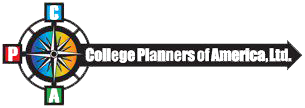If you’re a high school junior, you should be planning ahead for the college interviews that will help you select the schools that are best for you. By speaking with you one-on-one, the interviewer can get to know you better on a personal level and experience your academic and extracurricular passions first-hand. An interview can boost your chances of admission at many colleges.
A Student’s Approach to Interviews
Are you likeable? No doubt you consider yourself to be, but it’s especially important to be perceived as being likeable and well-informed in college interviews. For the best outcomes, reflect these two characteristics, be relaxed, and avoid a few common mistakes.
You should schedule an interview with each of your targeted colleges. Be as well prepared for each interview as you would be for any exam that you take that has an impact on your educational goals.
A College’s Approach to Interviews
Research by the National Association of College Admissions Counseling (NACAC) shows that interviews are given different weights in college admissions. A survey revealed that 8.4% of colleges assigned considerable importance to interviews, 16.2% assigned moderate importance, 29.8% assigned limited importance, and 45.5% assigned no weight to interviews.
As you can see from the last category above, only slightly more than half of colleges consider interviews to be part of their decision process. Many schools conduct interviews only for their recruiting value and don’t evaluate them. However, many schools still consider interviews to be one of the factors in admission. Colleges that track the Demonstrated Interest of applicants, a topic reviewed in our last post, usually score and weigh interviews as part of their evaluation of applicants.
Alternative Types of Media in Interviews
Person-to-person interviews are recognized as the best way to learn about the personality and attitudes of applicants. Admissions officers continue to conduct interviews on-campus, but now, they’re more often conducted in the field by alumni located around the country. For applicants not located within easy traveling range of either an on-campus or an alumni interview, there are proven technologies that can be used for interviews. These include Skype, Zoom, and teleconferencing software tools like Webex, GoToMeeting, and GoogleMeet. Even a phone call will do in a pinch. Alternatives to in-person interviews have greatly increased in effectiveness and usage since the pandemic.
How We Help You Prepare
We at College Planners provide expert assistance to our students in preparing them for interviews. We help you to be relaxed and confident. Due to preparation, your conversations with interviewers won’t sound rehearsed or robotic. They’ll be natural even though they are, in fact, rehearsed.. Your high confidence level will enable you to provide cogent ad-lib responses even to unanticipated questions.
Interviewers expect you to ask questions, not just answer them. To fail to ask questions may be perceived as lack of interest in the school. Below are examples of the types of questions that you should ask. The first two are questions that indicate that you did your research. This demonstrates your interest in the college. The third gives interviewers a chance to talk about themselves because everybody likes to talk about themselves. The fourth shows that you were listening when they were speaking. These questions, as yours should be, are worded so as to “assume the close” in the sense that they subtly anticipate your acceptance by the college.
- “I plan to participate in the field study program in archaeology, but that may interfere with my ability to play in the school orchestra. Do you know if there are other student-musicians who study abroad in pursuit of their major?”
- “I would like to participate in the internship program that you have for fine arts majors, but I didn’t find examples of what these internships would entail. Can you give me some examples?”
- “When you were an incoming freshman here, what do you know now that you wish you had known then?”
- “Earlier, you mentioned that there are undergraduate math tutors. Can you explain to me what the qualifications are to become a student-tutor?”
Here are a few tips on the types of questions not to ask:
- Don’t ask anything that is answered on the website or in the course catalog.
- Don’t focus your questions on campus life to the exclusion of academics.
- Don’t ask, “What are my chances for admission?”
- Don’t ask so many questions that there isn’t enough time left to talk about you.
- Don’t shoot from the hip — aim each question purposefully.
- Don’t ask the interviewer any questions that they may consider too personal.
You can rely on your College Planners admissions consultant to assist you with all aspects of interview preparation. The interview may not be the most important factor in the admissions process, but it’s one that you can nail.


Recent Comments